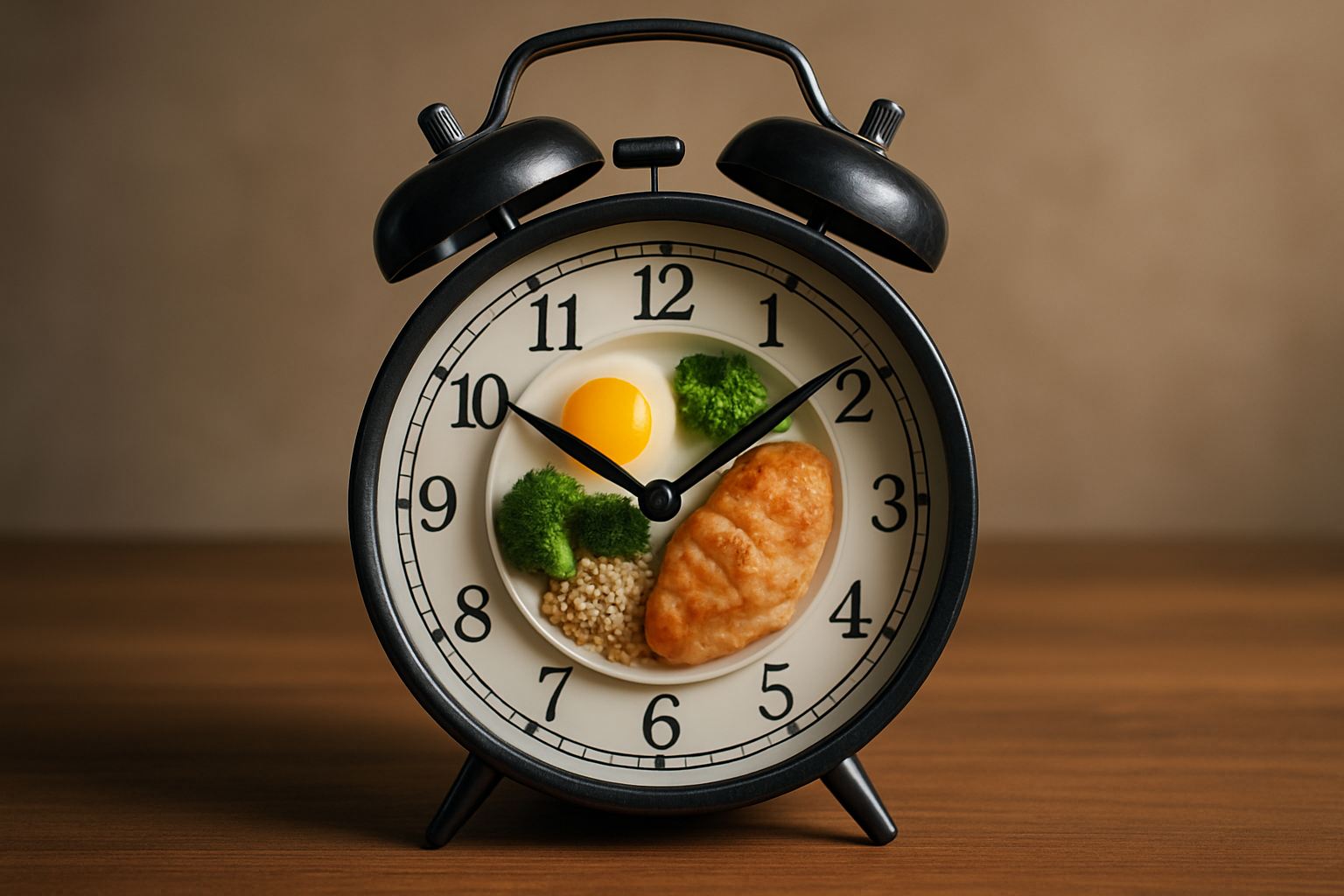Chrono-Nutrition: Timing Your Meals for Optimal Health
In the ever-evolving landscape of nutrition and wellness, a groundbreaking approach is gaining traction among health enthusiasts and researchers alike. Chrono-nutrition, the practice of aligning meal timing with the body's natural circadian rhythms, is revolutionizing how we think about food consumption. This innovative concept goes beyond traditional dietary advice, focusing not just on what we eat, but when we eat it. By syncing our eating patterns with our internal biological clock, chrono-nutrition promises to optimize metabolism, improve digestion, and enhance overall well-being. As we delve into this fascinating field, we'll explore how this time-based approach to nutrition could reshape our understanding of healthy eating and potentially unlock new pathways to vitality and longevity.

These internal clocks influence the body’s ability to metabolize nutrients at different times of the day. For instance, insulin sensitivity is typically higher in the morning, making it easier for the body to process carbohydrates earlier in the day. Conversely, the body’s ability to break down fats is often more efficient in the evening. By aligning our eating patterns with these natural rhythms, chrono-nutrition aims to optimize nutrient absorption and energy utilization.
Key Principles of Chrono-Nutrition
The fundamental principle of chrono-nutrition is to eat in harmony with our body’s natural circadian rhythms. This involves several key strategies:
-
Eating within a defined time window: Proponents of chrono-nutrition often recommend limiting food intake to a 8-12 hour window, allowing for a longer fasting period overnight. This aligns with the body’s natural fasting and feeding cycles.
-
Front-loading calories: Consuming a larger breakfast and lunch, with a lighter dinner, is often advised. This approach takes advantage of the body’s higher insulin sensitivity and metabolic rate earlier in the day.
-
Timing macronutrients: Carbohydrates are generally recommended earlier in the day when insulin sensitivity is higher, while protein and fats are emphasized in later meals.
-
Consistency in meal timing: Regular meal times help reinforce the body’s circadian rhythms and can improve metabolic function over time.
Benefits of Chrono-Nutrition
Emerging research suggests that adopting a chrono-nutrition approach may offer numerous health benefits:
-
Improved weight management: By aligning eating patterns with the body’s natural metabolic rhythms, chrono-nutrition may enhance weight loss efforts and help maintain a healthy weight.
-
Better blood sugar control: Eating in sync with circadian rhythms can help regulate insulin levels and improve glucose metabolism, potentially reducing the risk of type 2 diabetes.
-
Enhanced digestion: Consuming meals at times when the digestive system is most active can lead to better nutrient absorption and reduced digestive discomfort.
-
Improved sleep quality: Avoiding late-night eating and allowing for a longer overnight fast can support better sleep patterns and overall sleep quality.
-
Increased energy levels: By optimizing nutrient utilization throughout the day, chrono-nutrition may lead to more stable energy levels and reduced fatigue.
Implementing Chrono-Nutrition in Daily Life
Incorporating chrono-nutrition principles into daily life requires some planning and adjustment but can be achieved through simple steps:
-
Establish a consistent eating schedule: Set regular meal times that align with your daily routine and stick to them as much as possible.
-
Prioritize breakfast: Make breakfast your largest and most nutrient-dense meal of the day, including a balance of protein, complex carbohydrates, and healthy fats.
-
Gradually reduce evening food intake: Start by avoiding snacks after dinner and gradually work towards having your last meal earlier in the evening.
-
Be mindful of macronutrient timing: Focus on consuming carbohydrates earlier in the day and shift towards more protein and fat-based meals in the evening.
-
Stay hydrated: Proper hydration supports metabolic function. Drink water throughout the day, but reduce fluid intake close to bedtime to avoid sleep disruptions.
Challenges and Considerations
While chrono-nutrition shows promise, it’s important to acknowledge potential challenges and considerations:
-
Individual variations: Circadian rhythms can vary between individuals, particularly for night shift workers or those with irregular schedules. Personalization may be necessary.
-
Social and cultural factors: Implementing chrono-nutrition principles may be challenging in social settings or cultures with different eating patterns.
-
Long-term adherence: Maintaining a consistent eating schedule can be difficult for some individuals, particularly those with unpredictable work or family commitments.
-
Potential for disordered eating: As with any dietary approach, there’s a risk of developing an unhealthy obsession with meal timing. It’s crucial to maintain a balanced perspective on food and nutrition.
-
Need for further research: While promising, more long-term studies are needed to fully understand the impacts and optimal implementation of chrono-nutrition principles.
As we continue to unravel the complex relationship between our internal clocks and nutrition, chrono-nutrition stands out as a fascinating frontier in the quest for optimal health. By aligning our eating patterns with our body’s natural rhythms, we may unlock new potential for improved well-being, energy, and longevity. As with any significant dietary change, it’s essential to approach chrono-nutrition with an open mind, patience, and guidance from healthcare professionals. The future of nutrition may not just be about what’s on our plate, but when that plate is served, opening up exciting possibilities for personalized, time-based approaches to health and wellness.






